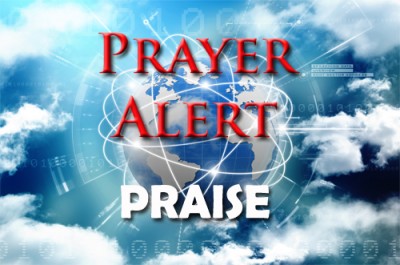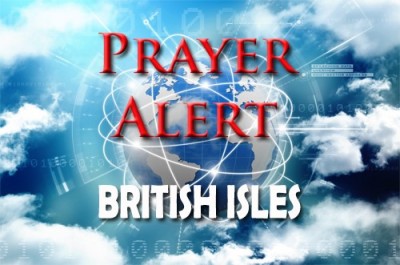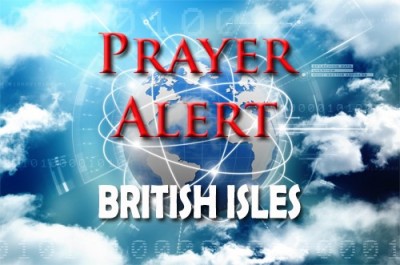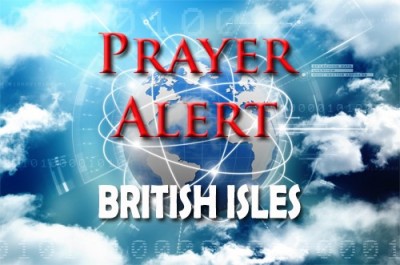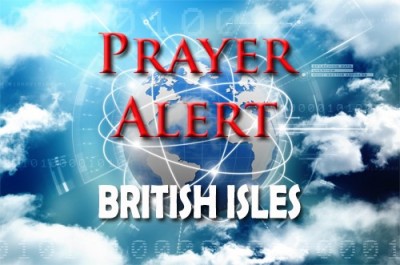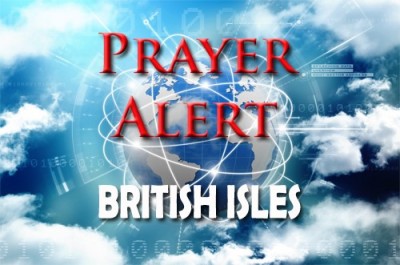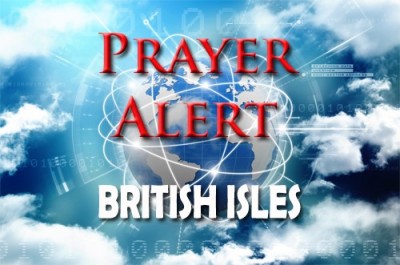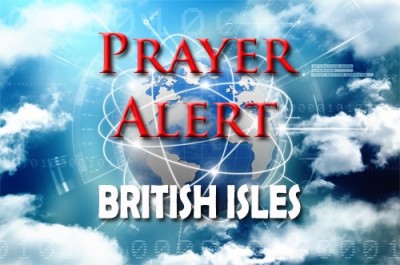Two teenagers rescued from brothel
06 Nov 2020Praise God for the successful rescue of two teenage girls from a small-town brothel in South Asia. A partner NGO of International Justice Mission (IJM) discovered this case and worked with local police, while IJM helped provide security and legal advice. Police also arrested one man and one woman who were selling the girls for sex in the brothel.
Captain Tom encourages fundraising for lonely
06 Nov 2020Captain Sir Tom Moore raised £33m for the NHS by walking 100 laps of his Bedfordshire garden before his 100th birthday. Now in the second lockdown, he has launched a new campaign to get people walking to help support those who feel ‘lonely and frightened’ during the lockdown. His daughter Hannah Ingram-Moore said the family had been ‘given an incredible gift of a voice and platform to do powerfully positive things’. Sir Tom said, ‘We are in a difficult situation, but we'll get through it if we all join together.’ The challenge encourages people to log their walking on social media using the hashtag #WalkWithTom over the next week. He hopes to raise money for his foundation, which aims to combat loneliness and support those facing bereavement. Pray that this initiative will raise not only money but also public awareness of lockdown loneliness that leads to ill health. See also the next article, on mental health challenges.
Lockdown will worsen mental health challenges
06 Nov 202042 mental health experts have warned that lockdown will trigger a spike in suicide, self-harm, alcoholism and domestic abuse. In an open letter to the Government, they said the longer the lockdown lasts, the worse this 'collateral damage' will be. Consultant psychologist Dr Keri Nixon, an expert in trauma and domestic abuse, said, 'The lockdown is supposed to prevent deaths from Covid. But it's also certain to cause further deaths, not only from other physical diseases like cancer but from poor mental health which has been worsening this year. It will also lead to intense loneliness and depression in older people: these are killer conditions, closely linked to poor physical health. Ironically, this will make them all the more vulnerable to Covid.' The letter calls for replacing lockdowns with 'focused protection' of the vulnerable. Each of the letter's claims are backed by peer-reviewed academic studies.
Security alert upgraded
06 Nov 2020The UK terrorism threat has been upgraded to ‘severe’ after terror attacks in Vienna and France. This is its second-highest level, meaning that an attack is ‘highly likely’. Previously it was simply deemed ‘likely’. Home secretary Priti Patel said people should be alert but not alarmed, as it is a precautionary measure following the horrific events in Europe recently. The tipping point was the attack in Austria’s capital, where five people died in a country not known for being targeted by Islamists. It is well established that terror attacks in one country encourage copycats elsewhere. Pray for people to remain vigilant but not under any cloud of fear, and to report suspicious activity to the police without any fearful thoughts of crying ‘wolf’. Pray for MI5 and all security services monitoring suspected Islamist extremists.
Cocaine supplied from CofE-owned house
06 Nov 2020Four men have pleaded guilty to drug offences after selling cocaine from a property owned by the Diocese of Exeter. In May the group was arrested in Ide, near Exeter, after police discovered 2kg of the Class A drug in nearby woods. The street value of the drugs stash was estimated to be around £200,000. Police also recovered approximately £30,000 in cash. Three of the men admitted conspiracy to supply cocaine at Exeter Crown Court last week, and the fourth admitted to a charge of conspiracy to transfer criminal property, which relates to cash seized from his car. The sentencing will be given on 27 November.
Pray for spiritual growth in lockdown
06 Nov 2020Based on a post by Passion for the Nation: ‘Ecclesiastes speaks of a time and season for everything under heaven. We can pray that during the four lockdown weeks, God’s people will take hold of the opportunity to allow Him to heal any hurts we hold in our hearts, cleanse us of wrong attitudes and motivations, and restore our first love for Him. In the days ahead may the power of the Gospel and the message of the Kingdom be released in greater measure throughout our land. Pray for God’s people to stand in the full assurance that His love, His word and His covenant with us will never fail; and for a fresh urgency to use the gifts God has given us with boldness and great courage in Jesus' name. “For I know the plans I have for you, says the Lord, plans to prosper you and not to harm you, plans to give you a future and a hope.” (Jeremiah 29:11)’
Lockdown worship rules may change
06 Nov 2020Last week faith leaders from across the UK wrote to the Government, urging it to re-evaluate the closure of worship places. On 4 November health secretary Matt Hancock, speaking to the House of Commons, said, ‘Ministers are talking to faith leaders to do everything we can to reach an agreement as soon as possible on the closure of places of worship during lockdown.’ He acknowledged the backlash from faith leaders on banning worship services during the second lockdown, and said he understood ‘the impact of this infringement on liberties’. Richard Graham, MP for Gloucester, and Sir Edward Leigh both argued that places of worship should open again as soon as possible, as the buildings have enforced Covid-19 safety measures. Theresa May said that banning worship meetings could set a 'dangerous' precedent.
How can we worship and share our lives, when the two ways of being together - in person and online - are often really difficult for families? Making online church work for children means including them. Six-year-old J says, ‘I like talking to everyone on Zoom after the service.’ A mother said, ‘It’s good when someone asks them questions, and listens. They don’t like listening to adult conversations.’ A three-year-old now celebrates the eucharist with the Vicar with his own cup, plate, and bread. Rev’d Mo Baldwin makes Zoom interactive. Children have treasure hunts, breakout-room challenges like artwork, or designing something. The families also record elements of the service. Beth’s 12-year-old daughter coordinates Kids Church Online, including creating worship herself and encouraging other families to make things and send them in. Rev’d Stephen Gardner reads a bedtime story online every night. A mum said, ‘We all cuddle up together to watch.’
